This Holiday SeasonThe holidays are a delightful time to share family traditions or create new ones, especially in the kitchen. This year, encourage your whole family to join in as a team on all the kitchen fun! Preparing and cooking your family holiday meal together is a great way to bond and foster teamwork in your kitchen. Depending on the age group and abilities of the family, there are several things in the kitchen that every member of the family can help do to assist with meal prepping and cooking. Turn dinner time into more quality time by finding ways for everyone to be involved. Cooking together can not only be fun and teach the whole family new skills, but also build confidence, responsibility, practice following directions, improve listening, reading, math—the benefits can go on and on. Following a recipe allows for every member in the family to be involved in one way or another. Here are a few ideas to get the whole family involved in planning, preparing and cooking your next holiday meal:
Plan the menu together ●Make a collaborative list of options for what sides to cook and serve. Ask your kids if they would rather have green bean casserole or a corn souffle if you’re determining which dishes to prepare. ●Look through recipes and make a shopping list together. Try categorizing the list by sections of the grocery store to make it easier come shopping time. Discuss nutrition in a fun way ●Teach your family about the powers of vegetables and allow room for creativity by giving dishes superhero names such as “Brainiac Beans.” By actively engaging in cooking activities, children learn about food and nutrition. ●Growing a garden is a great way to get your family excited about cooking while taking pride in something they were involved in creating. ●This is also a great opportunity to teach children proper serving sizes and the MyPlate method by allowing them to build their own plates. Check out www.choosemyplate.gov for more information and family fun nutrition activities. Get creative ●Split up in teams and have a cooking competition or set up a race to see who can finish a certain task first- such as washing and peeling carrots, or peeling and washing shrimp. ●Let the kids choose or add the toppings to one of your dishes, like the final touch of marshmallows on the sweet potato pie, or helping to crush candy canes and pecans if that is part of the recipe. Kids will enjoy taking ownership of a dish they helped create and may even get them to try new foods. Always ensure kitchen safety by giving everyone age-appropriate tasks: little ones can do the mixing and pouring, while teenagers and adults can handle anything heavy, sharp or hot. The holidays are a great time to get the kids involved in the kitchen. Instead of stressing about preparing your next family meal, find ways to engage your kids and turn it into a fun family memory.
1 Comment
 Being a professional Dental Assistant is a great choice if you’re looking for a new career or just starting fresh out of school. It’s a unique career in the fast-paced and rewarding health care field —no two days are ever the same! If you’re interested in helping people, and making important personal connections daily, then becoming a Dental Assistant may be a great choice for you, and Bartram Dental Assisting School (BDAS), housed at Bartram Dental Center can help you. Why choose Dental Assisting as a career? 1. DEVELOPING CONNECTIONS Often, we find jobs “unfulfilling” – leaving you feeling like you are not making an impact. Working as a Dental Assistant, you’ll quickly realize your importance. Patients rely on you for compassion, expertise, and friendliness when they’re nervous. A knowledgeable, welcoming smile can make a huge difference in a patient’s visit. The Dental Assistant is often one of the most trusted persons in the office. 2. LIMITLESS POSSIBILITIES With the Expanded Functions Dental Assisting Certification awarded from BDAS, you can secure a great job in any type of dental practice. Do you like doing different things every day? General dentistry is a great option. If you prefer routine and thrive on structure, a specialty office might be a good fit. The wonderful thing is that you have options and can always change as you grow in your dental assistant career. 3. CAREER OPTIONS Once you have the experience of assisting, other dental-related careers become available. Some choose to sit chairside their entire careers because they love the patient interaction. Others move to the administrative side of dentistry. You could even decide to become a hygienist, dental sales representative, or an equipment trainer that travels the country! 4. DENTAL ASSISTANTS ARE IN DEMAND Need for Dental Assistants is projected to grow 19% through 2026, according to the U.S. Bureau of Labor Statistics. Those with Dental Assisting certificates during the next several years can be very selective about where they work. That translates into better pay, more benefits, and more respect on the job. BDAS is your first step to an exciting new career. Our school is operated by practicing dentists and experienced dental professionals in a state-of-the-art dental office. You will gain exposure to a wide range of techniques, materials, and dental knowledge with a focus on the skills you'll need to get your dream job. Additionally, BDAS is a recognized program by the Florida Department of Education and the Florida Board of Dentistry. Upon completion of the program, students earn their Expanded Functions Dental Assisting Certification, Florida Dental Radiography Certification, CPR Certification and all required OSHA and HIPAA training. Each student receives a personalized resume for post-graduation use. We assist with job placement and provide coaching for interview preparation -- questions you'll be asked, what to wear, and discuss the impact of social media while interviewing. If you are interested in becoming a professional Dental Assistant, please call BDAS at (904) 201-6000 or visit bartramdentalassisting.com. The Art of HealingThe tradition of integrating art in health facilities can be traced as far back in history as to when the first hospitals grew out of hostels run by the church as infirmaries for the sick and old. Michael Mullins, the co-author of an international study on hospital art, stated, “It is documented that art can reduce the experience of pain through distracting patient’s attention.” Perhaps this is why most health system facilities have curated art collections in their public and private spaces.
By Diana Brummer,MSW, LCSW & Owner of Good Mental Health 2020 has proven to be a year unlike any other. We’ve dealt with a global pandemic, a contested presidential election, social unrest, school closures, job losses, mask mandates, government-issued quarantines, social distancing, and the pervasive upset to the routines that lend stability and comfort to our daily lives.
It is no surprise that our collective mantra for this New Year is to leave 2020 in a cloud of dust, growing smaller and smaller in our rearview mirrors. But as with any hardship, 2020 also brought with it opportunities and lessons. It introduced a heightened awareness and allowed for greater insights as only a crisis could if we choose to see them. 2020 shined a light on our need for compassion, community, and mostly each other. It shifted our focus to the fragility of life, the preciousness of time with those we care about, and the ache we didn’t know we would feel from wanting to be together when can’t be; all things we may have taken for granted in 2019, and all priorities I hope we maintain in 2021 and beyond. This new year already appears to be off to a promising start. We have vaccines in distribution, an election decided, and hope on the horizon for a return to normalcy. But as the days turn into weeks and the weeks into months, our work must continue. The wisdom we gained by going through the hardships of this last year will only disappear if we allow it to. It is up to us to embrace these lessons and change for the better, as individuals, as a community, and as a society. As it becomes safe to do so, I encourage you to continue to value what we longed for and lost during this past year: the unencumbered smile and embrace of our family and friends, a job that allows us to contribute to the world and also provides for our physical our needs, the ability to sit side by side without barriers, at work, school, church, and anywhere else our hearts desire. I encourage you to find value in what we gained this past year: a taste of a slower pace of life, working from home when possible, treasuring the time spent with the people who mean the most to us in the world; taking care of our physical health as well as our emotional and spiritual health, becoming woke to the knowledge that life is finite and therefore precious. In the best of times, as well as in the worst of times, it is up to us to make our one precious life count. Good Mental Health, LLC is a counseling and coaching practice located in St. Johns, Florida, offering individual and family counseling to adolescents and adults. With sessions available face-to-face and online, we hope to provide the tools and skills necessary to heal past wounds, grow healthy relationships, and build strong families. For more information, to read more about us, or contact us please visit GoodMentalHealthllc.com. by Dr. Raquel Watkins Board-certified allergist with has offices in Jacksonville and Orange Park. www.watkinsclinic.com According to the Centers for Disease Control and Prevention (CDC), 1 in 13 people have asthma so about 25 million Americans have asthma. Asthma is a chronic lung disease that causes airway congestion and tightness. Symptoms can include cough, shortness of breath or chest tightness. It is important to know when your asthma is not controlled, what your triggers are and the two basic types of medications used to treat asthma.
Do you know the “Rule of Two’s”? Do you have asthma symptoms or use your quick relief inhaler more than two times a week? Do you wake up at night with asthma symptoms more than two times a month? Do you fill a canister of your quick relief medication more than two times per year? If you are answered yes to any of these or if you are unsure, it is time to involve your doctor to discuss asthma control. Do you know your triggers or how to manage them? Many asthmatics can be allergic to weeds, trees, grass, mold, dust, dog or cat allergens. If you have never been tested, speak to your doctor about getting tested for allergies so that you can better understand your triggers. Allergies are typically treated with Medications, Modification of the environment and Modification of your immune system with immunotherapy or ‘allergy shots’. Now during the peak pollen season, if you feel triggered, take the medications that your doctor has recommended. If you are allergic to pollen, wear a mask when outdoors, and shower or wash your face after coming indoors. Indoor allergens such as dust mites can be reduced by stepping up cleaning, and by keeping humidity indoors to less 55%. You can do this with a dehumidifier. Know the differences between your medications. There are two basic types of medications that can be helpful for people who have asthma. The first is a rescue inhaler such as albuterol. The rescue inhaler can help to open the airways and can be used for cough, shortness of breath and wheezing. The second medication is a controller medication, and this one should be used daily even if you are feeling well. Since the Covid-19 pandemic has coincided with the peak pollen season, it is important to control your allergy and asthma symptoms to avoid confusion over Covid-19 since some symptoms overlap. Take your medications as instructed by your doctor. Follow your Asthma Action Plan. If you do not have a plan, now is the time to speak to your doctor. Keeping your asthma under control can help you to be your best self, and lead to a healthier and more active lifestyle.  As we enter the 3 phase transition plan for reopening our society following the COVID-19 pandemic, many of us are excitedly anticipating a return to “normal life.” With a safe reopening weeks away, once it does arrive, it will be a totally new normal we are returning to. Going forward, we will refer to this experience as “before and after." COVID-19 has challenged us and changed us, creating disruption in our routines, and uncertainty about the future. Letting Go with Compassion During this time of lockdown and social distancing, vital experiences have been missed. Students have spent their fourth quarter of the school year away from their campus, teachers, friends, and activities. Seniors have missed important events and opportunities such as prom, grad bash, and spring sports. It remains to be seen whether postponed graduation ceremonies will be able to safely proceed as the summer unfolds. Non-essential businesses shut their doors and risked their financial solvency to keep the community safe. Essential workers continued to report to work, risking their personal health so that their neighbors could access the vital services they provide. We have begun wearing masks. We have all been asked to give up pieces of ourselves during the COVID-19 pandemic. Whether you were a greeter at church, a school volunteer, a little league coach, or the social organizer for your friend group, we have all experienced the loss of the roles we once held before life changed. And with loss comes grief Processing Grief Grief expresses itself in many ways. It can feel like anxiety, depression, fatigue, and stress. It can display as sadness, anger, ambivalence, or a combination of these. Behaviorally, we may withdraw from, or lash out at, those close to us. We may be drinking too much, exercising too little, sleeping too much or not enough. It may be difficult to stick to a daily routine or find joy in the activities that are available to us right now. It may be hard to connect to the people we need most. We may compare our situation to others, and decide we don't have it as bad as those in other parts of the world. We begin to deny the validity of our difficult emotions and feel shame or guilt for having them at all. By denying that our grief exists, we deny ourselves the opportunity to grieve what's been lost and to ultimately heal. The New Normal Human beings are resilient creatures. We can bounce back from extraordinarily difficult things. But in order to do that, we have to allow ourselves space and grace to process our difficult emotions. We do that by acknowledging they exist, allowing ourselves to feel them, and speaking them out loud to a trusted friend, support person, or to ourselves in the safe pages of a journal or in our own minds while we reflect. Let's allow ourselves to grieve what was, then imagine what our new normal might be. We can harvest the good from this difficult experience-increased time with our families, learning we are capable of (and maybe enjoy!) working and learning remotely, witnessing the solidarity of the human race as we truly are all in this together but separately. Let’s perhaps recalibrate our priorities based on a new appreciation of the fragility of life and design a vision for our future that is not only different but better than before. If you are struggling emotionally during this difficult time, please visit our website at www.GoodMentalHealthLLC.com for access to relevant blog posts, local resources, or to schedule an appointment. For the safety of our community, all upcoming appointments will take place by phone or online via video chat. We are experiencing an unprecedented global health crisis. In a world that feels largely out of control, what can we do to stay calm while facing so much uncertainty?
First and foremost, we must recognize that we are human and it is a normal human reaction to feel anxious and worried at a time like this. Whatever your style of coping, recognize that you are doing the best you can in a difficult situation. That being said, the following are a few techniques you may also find helpful. Challenge negative thinking: Our interpretation of a situation will create our experience of that situation. The reasons we are socially distancing are serious and scary, however, the experience of social distancing doesn’t have to be. Reframe this experience by giving yourself permission to enjoy this mandatory time out. Experience being at home, spend more time with family, brainstorm creative ways to connect with others without physically meeting up. We have the option to view this situation as a crisis as well as an opportunity. I would offer that most situations in life can be viewed, and treated, as both. Be mindful of your focus: Is a global pandemic terrifying? Yes. Is the divinely inspired human race amazing and resilient and brilliant when we work together for a common goal? Also, yes. As quickly as a crisis can manifest, it can also resolve. When our minds drift to worry about the future and the safety of our loved ones, we can affirm that there are brilliant minds around the world pooling their talents, skills, training, and abilities to identify a solution to this problem. By working together, we can and will overcome this problem. Ask, what’s in my control? We have been given a mission: practice social distancing. Limit non-essential travel. Work from home if we can. Wash our hands. Self-isolate if we experience symptoms of illness. These are the things we can control. Just as we can remind ourselves that a solution is on it’s way to us, we can also remind ourselves that, by doing our part, we are helping to bring that solution more quickly into reality. We must focus on what we can control, and then commit to doing it. We move forward with faith that the rest, which is not in our control, is also in progress by others who are capable and inspired to solve this problem. Denying difficult emotions does not prevent us from having them. Doing so, we bottle them up, stuff them down, and let them accumulate until they erupt in unhealthy ways and at inopportune times. Grounding is a skill that becomes stronger with practice. It begins when we give ourselves space and grace to feel difficult emotions. It works by challenging our unproductive, negative thoughts and reframing them with more helpful, productive thoughts instead. What we focus on increases so let's make sure we are focusing on the magic that is possible versus the fear that it's not. If you are experiencing increased anxiety during this difficult time, please visit our website at www.GoodMentalHealthLLC.com for access to relevant blog posts, local resources, or to schedule an appointment. For the safety of our community, all upcoming appointments will take place by phone or online via video chat. by Dr Kathleen Deckard Pets R Family COVD-19 is at the forefront of everyone’s minds right now so I want to address some common questions about whether your pet may be affected by this virus.
What is COVID-19? While coronaviruses are common, COVID-19 is a new strain of coronavirus that had previously not been identified in humans. The key features of COVID-19 are respiratory symptoms with a fever and cough. Like all new infections, understanding COVID-19 is important with details coming in rapidly. Coronaviruses in pets have been around for a very long time. It is important to know that the coronavirus of infected dogs and cats cannot affect humans. Cats get their own coronavirus that typically causes either no clinical signs or very mild diarrhea. The feline coronavirus is also associated with another disease called feline infectious peritonitis, which is very serious. Similarly, dogs have their own coronavirus that can cause diarrhea, lethargy, and reduced appetite, but most dogs recover uneventfully with supportive care. Simply stated, cat and dog coronaviruses are very different than COVID-19. Can my pet get it? On February 27, 2020, news broke of a Pomeranian in Hong Kong that tested weak positive for COVID-19 from swabs obtained from the nose and mouth. It is important to note that it is highly unlikely that your pet would be able to harbor the virus on their fur since it is porous and fibrous. Veterinarians and human health officials have decided after many tests, that the affected dog had a low-level of infection that was likely to be a case of human-to-animal transmission. To be cautious, the dog was quarantined, but has never had clinical signs of illness. Based on currently available information, both the US Centers for Disease Control (CDC) and World Health Organization (WHO) report there is no evidence cats or dogs can spread COVID-19. Furthermore, there is also no evidence pets get sick from COVID-19. One of the world’s leading veterinary diagnostics firms tested thousands of dogs and cats for the new coronavirus, and not a single case came back positive. This backs up the theory that pets cannot catch or spread Covid-19. How Covid-19 could have an impact on available pet medications. According to the American Veterinary Medical Association, 32 animal drug companies either make their drugs or obtain ingredients for their drugs from China. The Food & Drug Administration (FDA) contacted all of these companies, and to date, none of them have reported drug shortages however shortages are anticipated in the future. What should I do? Although research is underway, there is no vaccine against COVID-19 currently available. Until we have an effective vaccine, we all need to exercise some common sense, including: Don’t panic! Stay informed – read unfiltered information from veterinarians as more data becomes available Thoroughly wash your hands with soap and water, including after handling / petting animals. This recommendation isn’t specific for COVID-19 – hand washing helps reduce the transmission of multiple infectious diseases! If you have COVID-19, restrict contact with pets and other animals. According to the American Veterinary Medical Association (AVMA), sick individuals should “avoid contact with animals, including petting, snuggling, being kissed or licked, and sharing food.” Another family member or friend should care for animals in the household whenever possible. The take-away message about COVID-19 and pets… The novel coronavirus COVID-19 is not thought to cause clinical disease in companion animals. As we learn more about this virus, you should keep abreast of any new information that is learned about the virus. Most veterinarians are staying open as essential providers of care for our pets and are taking proper precautions to limit person to person contact. These precautions include curbside service, shipment of medication to the home, delivery of food and medications, drop off appointments, telemedicine and phone consultations. Do not delay your pet’s care during this time. Contact your veterinarian for how they can help care for your pet during this challenging time. by Diana Brummer, MSW & Owner of Good Mental Health LLCThe holiday season is upon us! This is the time of year that brings families together. It can also be the time of year that reminds us why we might choose to spend time apart. Why is it that we can walk through the door of our parents' homes and immediately feel like we're ten years old again? If you find yourself anxious at the thought of spending quality time with your extended family this holiday season, taking a look at family roles and the feelings these roles can trigger may be a reason why.
As children growing up in a family system, we are often unconsciously assigned roles to fill. Were you the high-achieving hero who diligently lived up to your parents' expectations and who continues to keep things running smoothly to this day? Or perhaps the scapegoat, an example of how to not fit in with the rest of the family? Maybe you were the mascot who provided comic relief when tensions ran high? Or the lost child, fading into the background with your nose in a book, someone who no one really got to know at all? Gathering again with aging parents and adult siblings, we may feel the uncomfortable pull of someone else's expectations for us. Those unresolved feelings from childhood and the sense of guilt, obligation, and sometimes disappointment they can trigger are what can make us uncomfortable in these situations. The following tips are part of my Family Holiday Survival Guide that can help our quality time feel more enjoyable for all: 1. Recognize your triggers. Realize that old childhood roles and expectations no longer have to be part of your adult experience and don't allow yourself to react to them as if they are. Recognizing and then interrupting our own dysfunctional behavior pattern is the first step toward changing our relationships for the better. 2. Establish a time limit before you arrive If two hours is the length of time you feel comfortable spending with the extended family, determine an exit strategy within that two hour window. No need to stay all day if you know from past experience that inhibitions lower and hurtful things are more likely to be said the longer you are together. Traveling from out of town? Renting a hotel room to allow yourself a place to unwind and recharge is often money well spent. 3. Choose a safe word (and share it with a safe person). Choose a unique word or phrase and share it with your significant other or another "safe" family member. If you find yourself becoming triggered or upset, use your safe word to make a fast get away. Something as simple as a walk around the block is often enough to deescalate a situation and give all parties time to clear their heads. Wishing you all a safe, joyful, and emotionally healthy holiday season! For more information on building, strengthening, and healing family relationships, please visit our blog at GoodMentalHealthLLC.com. by Michael L. Duncan, Esq. Duncan Trial & Family Law 11512 Lake Mead Ave., Suite 301 Jacksonville, FL 32256 If you are divorced with children, then you are never completely separated from your ex. This is because you and your ex are connected through your children and will be throughout life. And, irrespective of what you think about your former partner, you have a job to do, which is to do the best job you can in raising your children.
Thanksgiving is almost here, and the Christmas and New Year holiday season is right around the corner. These holidays are very special for many people and their families, and dealing with them during and after divorce can be challenging. Here are my top tips for helping your children have the best holiday season possible despite your divorce: 1. GET IN THE SPIRIT OF THE SEASON - The holiday season is a time for being thankful, for giving, and for new beginnings. Teach your children to truly appreciate Thanksgiving and be grateful for the love you share with them. You can show them how to appreciate the Christmas season by being giving to others and each other. And, through your example, you can show them how the New Year can be one of healthy, fresh starts. 2. COMMUNICATE & COORDINATE: Communicate and coordinate with your children's other parent. Look, it is understandable if you find this to be a challenge. But a brief email, text message, or conversation can help make certain that everyone’s plans for the holidays work out well. Work out exactly where and with whom your children will be during what times, and when, where, and how exchanges will occur. Timely and properly detailed communications in advance can help to avoid frustration and confusion for you, your children’s other parent, and your children. A few minutes now can spare you days, weeks or months of frustration and anger (not to mention attorney’s fees) down the road. 3. TIME & ATTENTION ARE THE GREATEST GIFTS: Being able to lavish gifts upon our children can feel great. But always remember that love means far more than money and material things. Your love, time, attention, and emotional support are much more important to your children than any material possessions. 4. PLAN IN ADVANCE FOR NEXT YEAR: Avoid last-minute juggling of schedules and the agony of 11th-hour negotiations in years to come and set up a plan for next year now if possible. Even if you simply begin the dialogue with your ex now, starting the conversation now can save you a lot of stress later. And, begin planning now with your own extended family to help make this process even easier. Everyone will be happier knowing what is coming, and you can avoid conflict for next year’s holidays. 5. ESTABLISH AND MAINTAIN TRADITIONS WITH YOUR CHILDREN: Holiday traditions are an important way in which we build memories that can last a lifetime. Whether it is the continuation of past rituals, or creating new ones, these traditions can give your children something to look forward to as they spend time with you during the upcoming holiday season. 6. ENCOURAGE YOUR CHILDREN TO ENJOY TIME WITH YOUR EX: Encourage your children to enjoy their time with their other parent – no matter your feelings about your ex, put your children first. Your children will enjoy the greatest stability when they can feel free to enjoy enriching relationships with each of their parents. |
AuthorSt. Johns Magazine is your fun & friendly resource for the growing communities of northern St. Johns Archives
December 2021
Categories
All
|
Proudly powered by Weebly

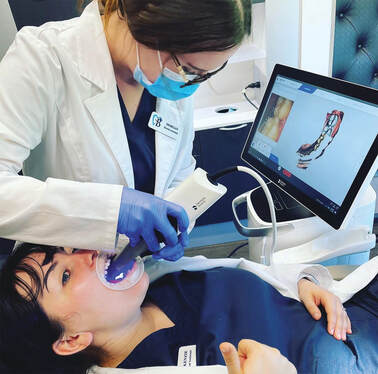
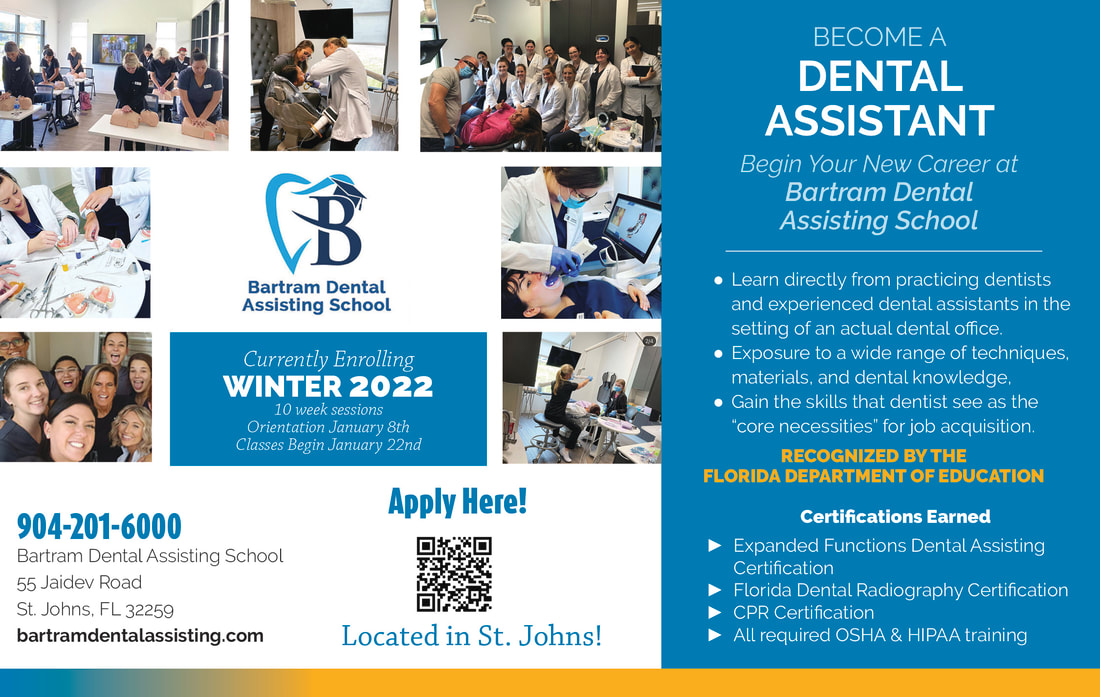
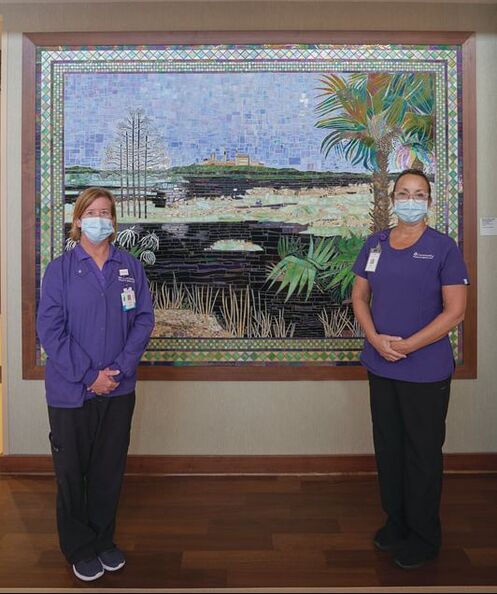


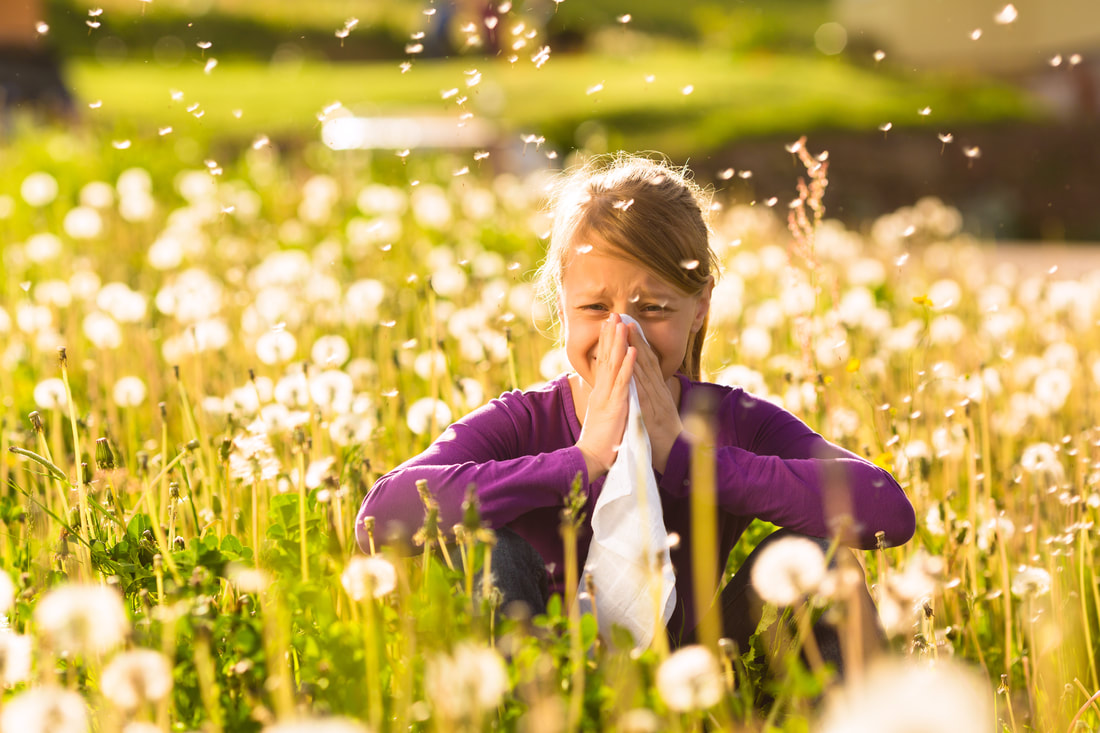


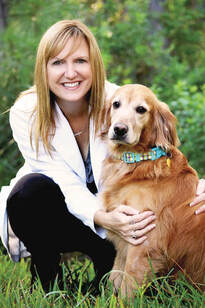


 RSS Feed
RSS Feed
